Objects of Power: Control and the Unconscious
By gamer_152 3 Comments
Note: The following article contains major spoilers for Control. It also explores childhood trauma and suicide. If you are struggling with suicidal thoughts, contact a suicide prevention organisation near you. For those in the US, you can reach the Suicide Prevention Lifeline at 1-800-273-8255 or find them online at suicidepreventionlifeline.org. If you are in the UK, you can call The Samaritans on 116123 or visit their website at samaritans.org.

"You're travelling through another dimension,
A dimension not only of sight and sound, but of mind,
It is the middle ground between light and shadow,
Between science and superstition,
And it lies between the pit of one's fears and the summit of one's knowledge,
You are now travelling through a dimension of imagination".
-Jordan Peele, The Twilight Zone
"To the superficial observer, it will appear like madness".
- Carl Jung, The Red Book
No matter how vast your fictional world and how intricate its lore, a sublime narrative isn't just an exploration of a setting but also the minds of the characters within that setting. That means their personalities and their modus operandi, but also the formative events in their lives, the objects and people they consider essential to their identity, and their unresolved pains. Of course, these characteristics don't just exist within individuals; in our cultures and communities, we have collective values, traumas, and memories. Smart fiction like Control makes time for both the mental preoccupations of individuals and those of society at large.
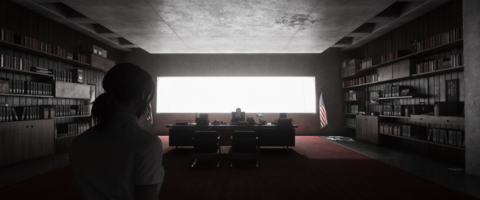
Control is a 2019 weird fiction game from Remedy Entertainment that follows Jesse Faden, a 28-year-old woman with a head full of unanswered questions and a quivering unease in the pit of her stomach. Jesse grew up with her brother, Dylan, in the suburb of Ordinary, Wisconsin. There, they and other children played with a supernatural projector; one that could open pocket dimensions corresponding to any inserted slide. It was all fun and games until the kids found a humanoid mammal living in one of the projector worlds. Some of them drank the milk of that creature and turned into simian monsters. The adults of Ordinary intervened, Jesse wished that these adults would disappear, and they did. Then a mysterious organisation skidded into town and attempted to seize Jesse, Dylan, and the projector by force.
The young Jesse burnt all of the slides, save one, and while she escaped these would-be captors, her brother did not. Since this incident, Jesse has been in psychic contact with a being called Polaris. As an adult, she visited a psychiatrist to help her process her experience in Ordinary but left unconvinced by the therapist's insistence that the accident was all in her head. Later, she discovered the name of the secret consortium that kidnapped her brother: the Federal Bureau of Control. Led by Polaris, Jesse visits their concealed New York headquarters: the Oldest House.
In Control's universe, the stigmas and cultural associations that humanity attaches to objects can result in those items manifesting special powers. The Bureau studies this phenomenon and contains these objects which they call "Altered Items" or "Objects of Power". To give an example of the effect, the Ordinary projector can open pocket dimensions because, metaphorically, we see projectors as machines that open windows to other places. In Korea, there is a popular myth that leaving a fan on for too long will cause anyone in the same room with it to perish. In line with this, the Bureau has recovered a fan that does exactly that.

An extradimensional entity called the "Board" guides the Bureau in their acquisition of and research on these objects. The Board exists in the "Astral Plane": a space which connects the different dimensions and bestows these objects their extranormal powers. It overlaps with various regions of the Oldest House and hosts the pocket realities Jesse visited as a child. When our protagonist enters the Bureau's paranormal fortress, she finds it in crisis. A malevolent force: the Hiss, has traversed from the Astral Plane into the building. The Hiss possesses FBC employees, turning some of them into aberrant soldiers and leaving others suspended in mid-air, reciting a hivemind speech.
The Director of the Bureau of Control is whoever wields an Object of Power called the Service Weapon. Amidst the chaos, Bureau Director, Zachariah Trench, has committed suicide with the weapon, and when Jesse picks it up, she becomes the new Director. Jesse's mission is twofold: Restore control of the Oldest House to the FBC and follow the scent trail of her brother. To scrub the stain of the Hiss from the HQ, Jesse "binds" dangerous Objects of Power, neutralising them and appropriating their effects. If Jesse binds an item that can levitate, she gains the power to levitate. If she binds an object that can shield itself with stone, she can shield herself with stone. And so on.
Along the way, she ingratiates herself with the heads of the several departments, and eventually, finds the prison which swallowed her brother. Dylan, in his current state, is the only person who can psychologically resist the Hiss but spends most of his time submitting to it, describing it as pleasurable to "say the words". Jesse also discovers that her therapist's incorrect assessment of her memories was part of a Bureau cover-up of the Ordinary "Altered World Event".
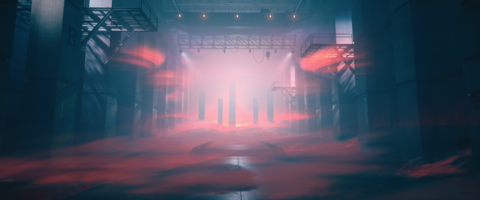
Up to this point in the narrative, the Bureau workers who've been able to keep the Hiss at bay have done it using a force from the Astral Plane called "Hedron resonance". We learn that researchers have opened a portal to the Astral Plane within the Oldest House using the projector and the one surviving slide, and it's through that tunnel that both the Hiss and the Hedron resonance trickled into the building. Following Polaris's nose and after the Bureau's missing head of research, Casper Darling, Jesse confronts the source of the Hedron resonance: Hedron, who turns out to be the same entity as Polaris.
The Hiss overtakes Hedron, and we learn that Director Trench was the Hiss's patient zero. A solitary leader, Trench kept his infection to himself, and the Hiss exploited his isolation to convince him that Hedron was a toxic agent in the Oldest House. Trench spread this antagonist throughout the building to rid it of Hedron. Back in the present, Jesse journies to the Astral Plane via the projector, and inside, confronts Dylan and cures him of the Hiss, at which point he falls into a coma. From there, Jesse restates her intention to lead the FBC and fumigate the Oldest House.
While Control's internal mythos is elaborate, most of its inspiration comes from a single source: psychoanalyst Carl Jung. Jung was the founder of analytical psychology, and Control is a particular fan of his concept of the collective unconscious. Jung believed that there was a bank of symbols and associations for those symbols that permeated all humans' psyches. For example, the dragon representing our dark side, or the maiden representing purity and desire. He believed that these unconscious archetypes help explain our thoughts and actions. The FBC cite Jung, and his ideas, by name, and the Oldest House contains a couple of departments labelled after concepts Jung studied: parapsychology and synchronicity.
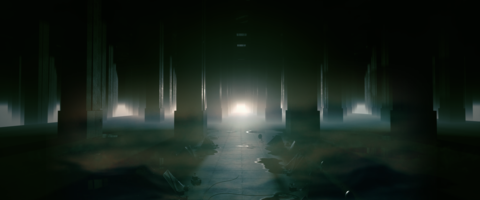
But where Jung's collective unconscious is highly abstract, describes ancient tropes, and exists beyond any individual culture, Control's collective unconscious is related to tangible objects, and deals in contemporary and culturally-specific associations with them. For example, the "fan death" fan we mentioned which is tethered to electronic age Korean culture, or there's the telekinetic floppy disk which stores nuclear launch codes, representing a Cold War mindset. It's also important to keep in mind that Jung's theory of the collective unconscious and his other theories that we'll discuss here are not scientific, as he did not develop them through the scientific method. Reader of Social Sciences, Raya A. Jones, writes:
"Jung's hypotheses must be taken on faith. Believers see the evidence everywhere, and seem to understand the task of empirical research as a matter of compiling catalogues of instances. It is not the logic of scientific discovery".
Even the existence of an unconscious as Jung or Freud thought of it has little sway among scientists of the mind. For the founding fathers of psychology, the unconscious is the sealed attic of the brain; what's inside can never be directly observed. This, they say, is why we must explore the unconscious indirectly: through dreams, or for Jung, specifically, through dialoguing with imagined personifications of it.[1] David B. Feldman, a Professor of Counselling Psychology, explains the problem with this theory:
"It's impossible to scientifically test. As a general rule, scientists consider something true only when it can be meaningfully observed or measured. The unconscious mind, by definition, can't be. After all, its central feature is that it's completely inaccessible".
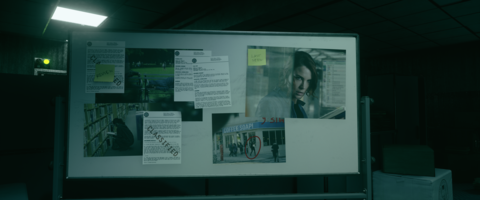
If we take Control literally, we could say that it is reinforcing pseudoscientific ideas of the unconscious and the law of attraction: the irrational belief that if you meditate on something or want something to happen enough, it will happen. The game's concrete skyscraper is full of busybodies in lab coats researching what is, in truth, not up for rational examination. However, if we take Control to be interpretive of its subject matter, we can identify it as tapping into something that's all around us but that we often don't dwell on. Jung's ideas might not be facts, but he does provide some broad rails along which we can explore the contents of our brains, as long as we remember that they are vague guides and not scientific models.
Control reminds us that contrary to common sense, objects aren't just physical parts. They are also the series of psychological associations we have with them, and those mental connotations can be powerful, sometimes more affecting than the pragmatic function of the object. The fan is just a fan unless you believe that it's a ticking time bomb waiting to kill you, then it has much more emotional push on you. A fridge is just a fridge unless your late child plastered their drawings all over it, then it may become a focus of obsession. As Casper Darling puts it:
"There is something unique in us, in our dreams, in the conceptual reality we power with our minds".
Just as the paranormal effects of the Altered Items address the unconscious semantics of them, the speaking style of the Board also acknowledges the background associations we have with many concepts. The Board is capable of saying two words at the same time, and those words will always both be relevant to what it's trying to convey or will have related meanings, even if they're not synonyms. See these sentences:
"The Hiss/Spread is searching for Transmissions/Speakers to Corrupt/Chaos. [...] You must Stop/Shut Up them".
"You have seen the Foundation/Base of the Building/Tree. The House grew there/here/everywhere. [...] We have a socket/door there".
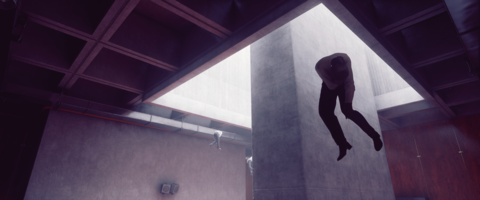
Notice how concepts like the Hiss and spreading, or sockets and doors go arm in arm. The Board also seems to have a unique insight into the hidden in its awareness of Control's existence as a video game. For example:
"Certain Resources/Loot can be Constructed/Crafted into Mods/Forms [...] at Control Points/Menus".
"You are Authority/Chosen One. The Bureau/Game needs you".
The Hiss's looping prayer suggests that their speech, is too, rooted in the unconscious. Much of this mind's diction sounds not like the premeditated, ordered rhetoric that we usually deliver, but as though it comes from somewhere more muddled, bringing secret truths. For example:
"Leave your insides by the door. Push the fingers through the surface into the wet. You've always been the new you. You don't want this to be true".
The Hiss also mentions a more explicit connection to that subliminal compartment in the back of our minds:
"We stand around you while you dream. You can almost hear our words but you forget".
Director Trench suggests a similar unconscious origin for the Hiss:
"It started as a distant whisper, like something you hear in a dream".
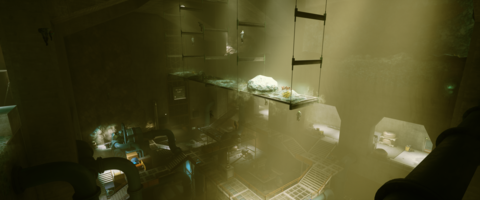
You're probably familiar with the psychoanalytic belief[1] that dreams are a window to the unconscious. Well, the Astral Plane is an anteroom to our reality that Bureau agents have accessed in their sleep. It is the point of origin for the subtextual power of the Altered Items, and the Hiss: the voices of the unconscious. It's a place where there is no distinction made between the objective and the subjective. Casper Darling says that peoples' thoughts litter the Astral Plane and that "it is with our minds that we enter and experience it". He also compares the dimension to an iceberg. Any first-year psychology student will remember that educators have often used an iceberg to illustrate Freud's theory of the mind with the unconscious represented by the bulk of the ice hidden underwater. The only safe conclusion is that the Astral Plane is a metaphor for the unconscious.
When Darling's team first discovered the Astral Plane, they believed that it was a purely psychological space. They had a rude awakening when a black fog from the plane hitched a ride back to our reality in an explorer's head. It then killed the agent. The dark cloud is a common metaphor for depression, and at the time this incident occurred, the FBC called these entities "Astral Fugues". They shared their name with dissociative fugues, a form of amnesiac psychological disorder.
Here, the game reinforces that it would be naive to see the unconscious or what goes on in our head as irrelevant to the physical world. The contents of peoples' minds can hurt them through emotion or mental illness, even killing them or the people around them. A few times during the game, Jesse comes under attack by Astral Fugues, having to contend with these blots on the mind. Darling also speculates that people may be a reflection or projection of the paranatural power that derives from the Astral Plane, speaking to the idea of the unconscious moulding us.
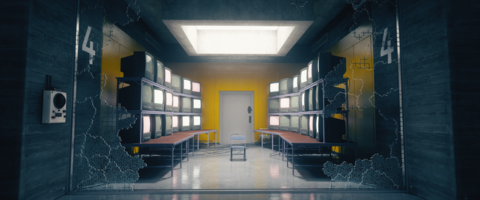
Every inch of the Oldest House, which is in constant convergence with the Astral Plane, has been touched by the psychological or unconscious. Despite him being dead, afterimages of Trench flash through the corridors like memories engraved in its concrete. The word "trench" invokes a deep, murky environment, much like the unconscious is said to be. The crafting items have names that cast them as intangible and cognitive like "Remote Thought" or "Ritual Impulse". Jesse can transform her Service Weapon into whatever firearm she needs with her willpower alone. We are initially pointed towards the Director's office, and later, led through the building's underbelly via Ahti, a janitor who seems to know all too much for his job title. And just look at the FBC's documentation. Its administrators redact an almost comic amount of information under the bureaucratic shroud of chunky black marker pen. Reading these reports is like listening to someone recount a half-remembered dream or otherwise access a part of their mind where much of the data is invisible to them. In the materials of lower clearance, the Bureau keeps the Hiss a secret. It's only those who study the Astral Plane (or unconscious) and its products that learn of that toxic soup on the brain's back burner.
The Oldest House also has an architecture that arguably brings to mind the psyche. This interpretation might be a bit of stretch for some but stay with me here. Across the headquarters, we see inverted, usually black pyramids hanging from the ceiling. They not only resemble the Board, but they look like a dark thought hanging over an otherwise untroubled mind. They also resemble the pointed base of the "consciousness" iceberg as textbooks often depict it. The Oldest House grew in a brutalist style, one which uses unpainted, unadorned blocks of concrete. But the game loves projecting coloured tints onto these slabs, most commonly a red glare that appears when the Hiss spawn in. The projection of tinges onto plain concrete is analogous to humanity projecting meanings onto the blank slates of the Altered Items. This projection effect has personal relevance to Jesse due to the role a projector played in her childhood; more on that in a bit.
We can also see that the environment, which at first appears stable and unyielding in its flat concrete surfaces, is highly malleable. Jesse uses telekinesis to rip hunks of material from the towering columns and sprawling floors of the Oldest House and wield it as weaponry. Stray projectiles flung about in combat also demolish this geometry, and the building will voluntarily shift in its skin to allow us passage, or in reflex to us clearing out the Hiss. There is one other place besides the Oldest House that we visit during the story: the Oceanview Motel & Casino. As Trench observes, it "operates on dream-logic": It is forever sunset there, and we find no exits, nor any other people. Doors open and close by themselves, and room contents change spontaneously. As in the unconscious, many rooms in the motel are permanently locked to us. Like Jesse's mind or any mind, Control's environments, that at first appear fixed, are actually relatively plastic and reactive, especially when we tame their shadows.
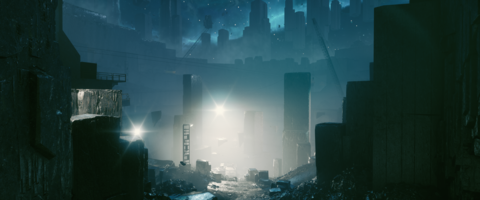
Like Jung, Control doesn't see the unconscious or psyche as a strictly positive or negative force.[1] Sometimes guidance and a sense of reassurance emerge from the Astral Plane, as is the case with Polaris or the echoes of Trench. The same is true for black rock, a material the Bureau mine from the Astral Plane which can block the Hiss resonance. The Hiss, however, shows the darker side of the unconscious, especially the collective unconscious. It personifies collective modes of thinking. Those occupied by the Hiss cannot think independently, and so, lack individual free will. They all speak the same ideas, and until awoken, they exist in a catatonic state. As Dylan tells us, it can be pleasurable to submit to that collectivist mode of thought, but ultimately, the game depicts this infectious groupthink as dangerous, casting the Hiss as enemies.
Alternately, we may see the Hiss as "the shadow". In Jungian psychology, every person has a "shadow": a persona made up of undesirable traits that they're often not conscious of.[2] We may naturally want to reject or to ignore these aspects of ourselves, but the more we do so, the more the shadow grows, with adverse consequences for our mental wellbeing.[3] A person cannot become a fully-developed individual until they have achieved awareness of the shadow and assimilated it into their overall identity.[4] At this point, we can no longer be ruled by it.[3] Jungians say we can heighten our perception of the shadow through exercises that put us in touch with our unconscious.
The poor souls who have submitted to the Hiss have their self suppressed, and as the Hiss, attack others and wreak havoc. In its chant, the Hiss says:
"You gave us the permission in your regulations. We wait in the stains. [...] We build you till nothing remains".
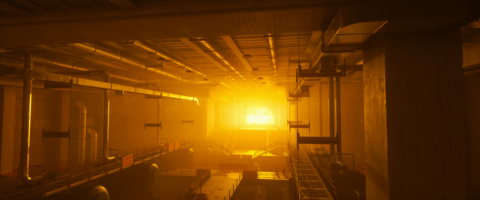
The Bureau uses Hedron resonance to distance themselves from the Hiss, but this is not a solution: any exterminator must confront it at the source. One problem for this interpretation is that it's the banishment of the Hiss rather than integration with it that ultimately heals Jesse and the Bureau. But, remember, there's no reason to stick too literally to what Jung thinks about the mind; we can use "the shadow" as a general stand-in for our troubling but less obvious mental aspects. Where the personal element comes into this is in Trench and Jesse's interactions with the Astral Plane, and its products, which represent their relationships with these obscured thoughts and feelings.
Zachariah Trench's experiences are comparable to those of someone with schizophrenia. Most people can't hear anything in the Astral Plane, but when Trench tagged along on an early expedition, he heard a voice: the fledgeling murmurs of the Hiss. Doctors examined him and couldn't find anything out of order with the Director, but his mind was already compromised. It's reminiscent of people not believing those who have a mental illness because their experiences are invisible. Trench begins hearing voices and becomes paranoid that everyone is scheming against him. Already believing that a leader doesn't seek support from others, Trench withdraws from the people who might help him with his Hiss infection, which makes his suicide almost inevitable.
Jesse has her own psychological torment to process. Her troubles with the Astral Plane start with the projector. As she and Dylan were able to use it in their youth to open portals to other worlds, it signifies childhood escapism to them. But then there's an accident in the woods, Jesse vanishes the adults of Ordinary, authorities attempt to take Jesse and Dylan into their custody, and they separate these siblings. It's practically an analogy for child services assuming responsibility for children and splitting them up when their guardians go missing. It's at this point that Jesse burns the projector because this is the moment when she loses that childlike ability to play in imaginary spaces. These lingering juvenile traumas can act like thermite in the mind of an adult and can be highly formative on their personality.
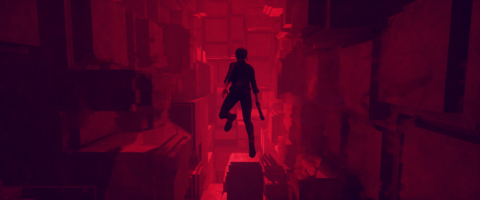
Jesse's therapist tells her to forget about the fate of her brother and the people who stole him from her. However, trauma isn't like an arrow in flight; we can't just dodge out of the way of it; we must confront it. Jesse aims to take control back from her pain, from these mysteries, and from the Bureau, at the Oldest House. From a more Jungian perspective, Jesse can only achieve individuation once she has ventured deep into the unconscious, and the unconscious is to be found in the Oldest House. She is led there by another unconscious force: Polaris, an instinct in her head which draws her forwards. Polaris, of course, being the name for the North Star which has been used by navigators since ancient times. However, we should note that it is more Freudian than Jungian that the answer to Jesse's troubles lies in her childhood.
At the Bureau, Jesse can sink into the unconscious and purge harmful unconscious elements, killing off the Hiss or shadow. Crucially, when she fights the dangerous and unconsciously-charged OOPs, she does not destroy them. She "binds" them, absorbing their powers in the same way Jung advises that we assimilate our shadow into our larger self. The "possess" power allows her to do the same thing with weakened Hiss. For a few seconds, at least. There is even a side mission called Self-Reflection in which Jesse must enter a mirror world and fight a shadow version of herself before she can bind the mirror with the dark Jesse inside it. Unlike Trench, Jesse makes sure to communicate with a support network about The Hiss, which allows her a fighting chance against these psychological demons.
Jesse returns to the formative experience in her youth through the building. This is mirrored in her repeatedly coming back to the spot where the Bureau began their occupation of the Oldest House: the Oceanview Motel. She explores these spaces of the unconscious and grapples with manifestations of it, she accesses Bureau materials, and she speaks to people with first-hand Altered Item experience. As a result, she gradually comes to understand what happened when she was a kid, how certain mental forces threaten her, and how to shield herself from them. She even receives a direct connection to the unconscious in the form of the "Hotline" OOP: a red telephone that the Board can ring. She also reunites with her brother, learns what she and Dylan's niche in the world is, and returns to a fragment of her childhood: the projector.
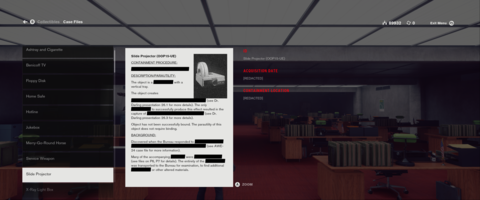
Unfortunately, the game has a limited imagination when it comes to the subtextual associations we apply to objects like that projector. Most of the anomalous properties that the OOPs exhibit come down to irregular movement: the Dead Letters and Carousel Horse dash around at lightning speed, the old TV floats, the Floppy Disk is telekinetic. This is because traversal is a fundamental building block of action-adventure gameplay and Control is an action-adventure game. There are relatively few OOPs, and the ones we do encounter are muzzled in what they can say about our associations with the inanimate. These Altered Items conform to the mechanics, instead of the mechanics meeting with them as equal partners.
We may also conclude that Control doesn't do justice to its subject matter because, while you can understand how thorns in the collective unconscious might prick these characters, almost none of the Altered Items Jesse binds has personal meaning to her. Depending on your taste, it may be enough that Jesse is exploring interesting phenomena, but you might ask why she's fighting an extradimensional traffic light or a teleporting flamingo when those fights don't represent any specific character struggle of her's. None the less, the story sets Jesse up for the final confrontation by giving it a lofty presence in the plotline. We get enough mysteries solved to feel satisfied, but the writers stay verklempt on a couple of burning questions, holding our interest.
Before we galavant off to find Hedron, we visit a dump to which the FBC has shipped the entire excavated location of the projector incident. Jesse literally returns to the site of her trauma. Then, we exchange punches with the Hiss in a scale replica of Ordinary. In this scene, we see Jesse's childhood home reduced to splinters in a battle between her and the unconscious, or between her and the forces of the FBC. In the game's final mission, Take Control, the Hiss breaks through Jesse's defences and traps her in a depressing contortion of the world. The colours are desaturated, and Jesse is busted down to office assistant, running endless menial chores for the Bureau. It's an analogy for how the organisation has, in some manner, controlled her all along. She also finds the delusional Trench in this reality and is trapped in the same negative headspace he was. However, she can still find empowerment in herself: Jesse loses the intern's uniform when she picks up the Service Weapon on Trench's desk. It's at this point that our protagonist can turn off the projector, bringing some closure to her childhood disturbance. Then, she finds Dylan in the Astral Plane, suspended underneath the inverted pyramid of the Board. The unconscious weighs heavy over him, but Jesse soothes his mind.
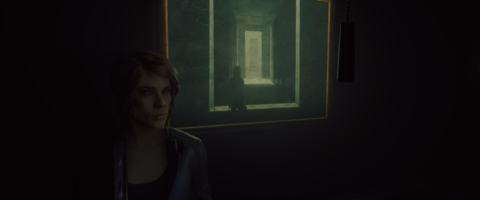
Tragically, the ending itself doesn't resolve any of Jesse's burgeoning issues. That resolution is important not just for Jesse's character arc but also for the game's lesson on how integral the unconscious, familiar objects, and our past are in our lives. Our Director's problems come from the Astral Plane or unconscious, and she grows as a person through the game by tackling the products of the Astral Plane. If the game is to follow through with this line of reasoning, then when Jesse sees the resolution of her psychic pains, we should also see her vanquish these unconscious monsters and join with her shadow. But in its closing hour, the game swerves hard to avoid closure.
It makes sense that Jesse quells the Hiss, the negative aspects of the mind, through journeying into the Astral Plane, but in her closing statements, there is an aching lack of conclusion. When a protagonist makes a wrap-up speech, it is typically to summarise how their experience has shaped them and what has changed over the course of the story. Control writes its closing monologue in this fashion, but ironically ends up communicating that very little has progressed. After Jesse cleanses Dylan of the Hiss, he falls into a coma, so we don't get to see any change in his lifestyle or personality or any shift in Jesse's relationship to him. Jesse vows to continue her work as Director, but this hardly counts as development given that she has been Director for almost the whole game. Jesse asserts that she will conquer the Hiss, but that's been the constant goal.
This story is about Jesse trying to reconnect with her past so that she may learn more about her family and history. If she can do this, she stands a chance at dulling the psychic stinging that has lingered through her life thus far. By shrugging off the chains of the Hiss, the Bureau, and her shadow, she can take control of her life. At the same time, this woman is a saviour figure, casting out ghouls from beyond the veil, and accepting the shadows of the Bureau into her. The tension of the narrative hinges on whether she can fulfil her obligations to herself and this organisation, but the ending fails to say that she does or does not, only that she may see the resolution of these problems at some hypothetical future date. An ambiguous ending can work on the back of nuanced character portraits, but that's not what Control is. While we gain a rich knowledge of the world throughout this narrative, Jesse's struggle within it produces only scant clarification of who she is.
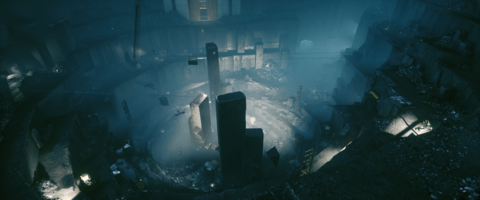
I suspect that Control's ending lacks as much resolution as it does because Remedy wants to keep the story open to continuation through downloadable content. However, to describe any process, you must specify its objectives and goals, otherwise, it lacks purpose. Control depicts a confrontation with the unconscious, cultural, and traumatic, but not the benefits it could yield. Ending aside, Remedy's weird fiction thriller finds radical originality through basing its world in the conceptual rather than the literal. By doing so, it also reminds us that the psychological can be just as real, affecting, and dangerous as the material, whether it comes from a person or a collective psyche. Yet, in that acknowledgement is also the power to transform our minds. Thanks for reading.
Sources
- Understand Your Dreams by Using Jung's "Active Imagination" by Dale M. Kushner (October 23, 2016), Psychology Today.
- Dr Roberts, G.W., Dr Machon, A. (2015). Appreciative Healthcare Practice: A guide to compassionate, person-centred care. M&K Update Ltd. (p. 71).
- Robertson, R. (1992). Beginner's Guide to Jungian Psychology, Nicolas-Hays, Inc. (Chapter: "The Shadow.")
- Stevens, A. (1999). On Jung, Second Edition. Princeton University Press (p. 44).
All other sources are linked at relevant points in the article.